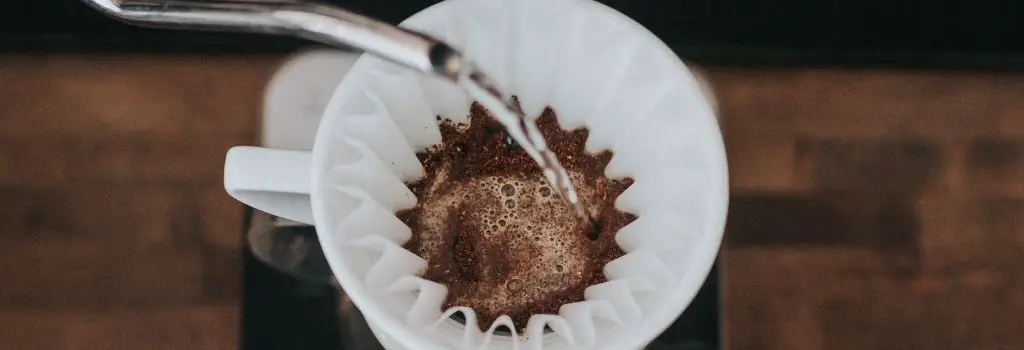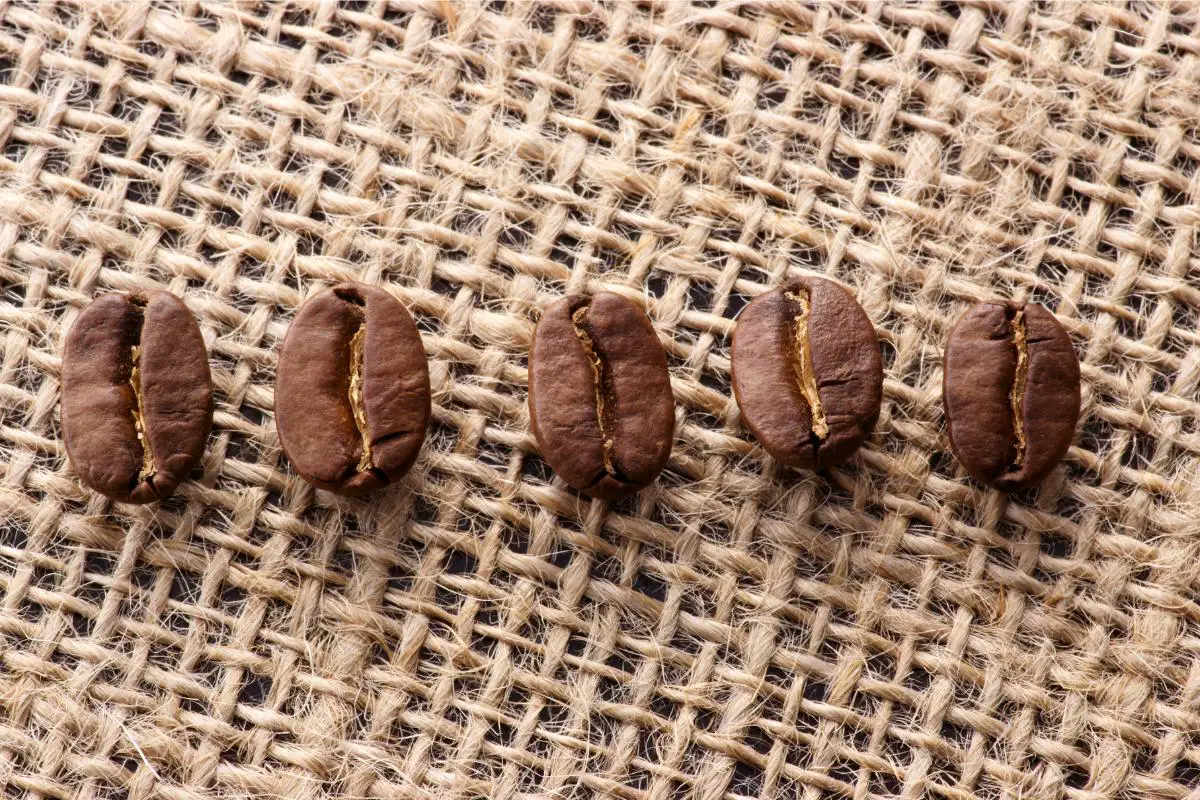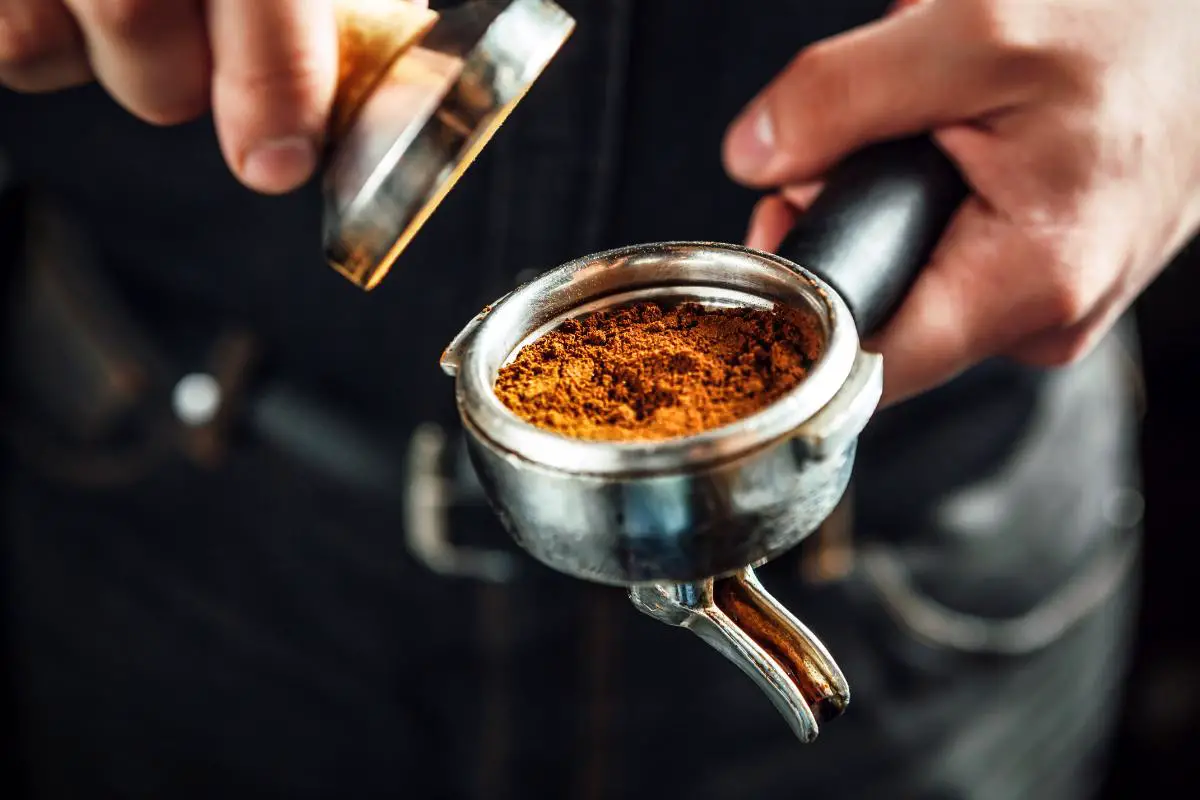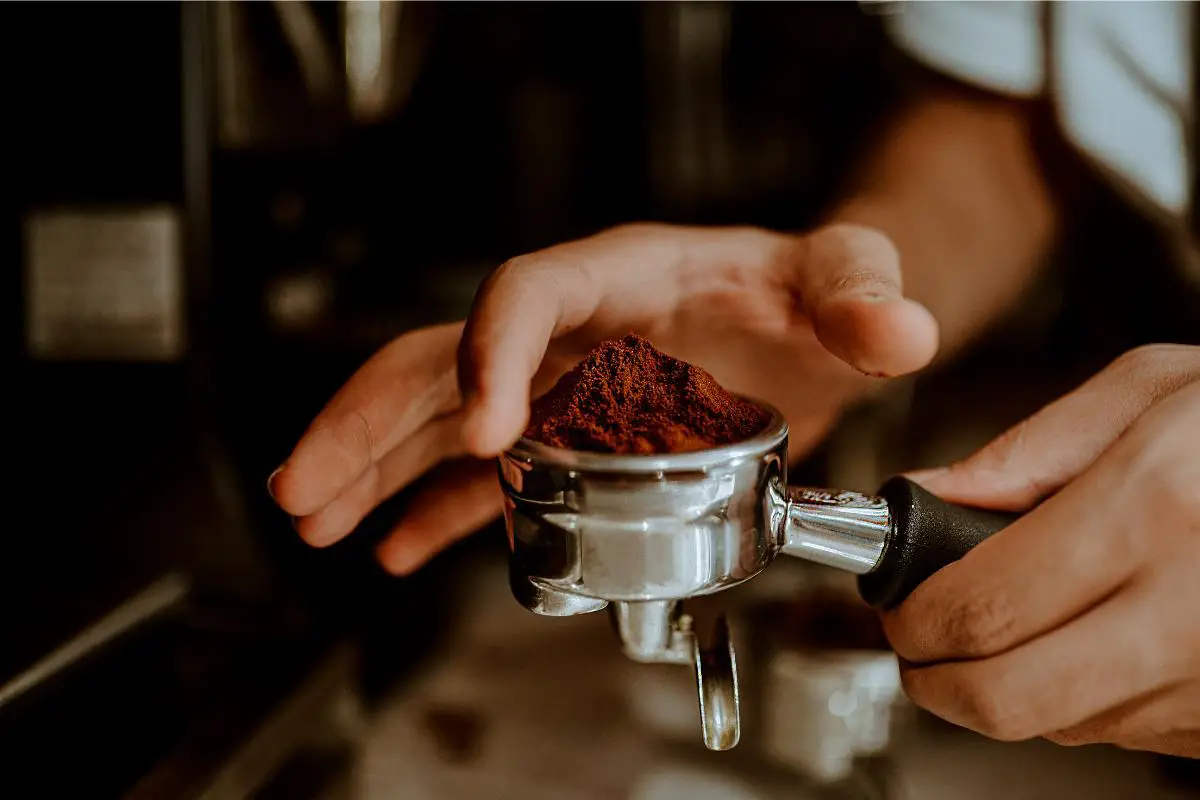Coffee bean density refers to the mass of a certain volume of coffee beans.
This can be measured in a number of ways, but the most common method is to use a scale to weigh a specific volume of beans, such as a litre.
The resulting measurement is then typically expressed as grams per litre (g/L).
Table of Contents
Why Does Coffee Bean Density Matter?
Simply put, the density of a coffee bean can affect the flavour and quality of the final brewed product.
Denser beans tend to be of higher quality, as they are typically more flavorful and have a greater potential for complexity.
Additionally, denser beans are less likely to be affected by defects such as insect damage or mould.
“For coffee professionals around the world, bean density is recognised as an important metric for grading and sorting green coffee by quality” – perfectdailygrind
Understanding Coffee Bean Density
Coffee beans are the seeds of the Coffea plant, which is typically grown in tropical regions around the world.
These seeds, or beans, are harvested and processed before being roasted and packaged for sale.
The density of the beans can vary depending on a number of factors, including the variety of the Coffea plant, the soil in which it is grown, and the processing methods used.
Factors That Affect Coffee Bean Density
Moisture content
Coffee beans that have a higher moisture content will be less dense than beans with a lower moisture content.
Roasting time and temperature
The longer and hotter the roast, the more moisture is lost and the beans will increase in size, resulting in a higher density.
Variety of the coffee plant
Different varieties of coffee plants can have different densities.
Growing conditions
Factors such as altitude, temperature, and soil can affect the density of the beans.
Processing method
The method used to process the beans, such as washing or natural, can also affect the density.
Storage conditions
Beans exposed to high humidity or temperature can lose density due to moisture absorption.
Grading
Beans that have been sorted and graded to remove defects will have a more consistent density.
Size
The size of the beans also affects the density, bigger beans will have a higher density than smaller beans.

What Is The Importance of Density in Coffee Bean Quality?
As mentioned earlier, the density of coffee beans can have a significant impact on the flavour and quality of the final product.
Denser beans tend to be of higher quality, as they are typically more flavorful and have a greater potential for complexity.
One of the reasons for this is that denser beans have a higher proportion of soluble solids, which are responsible for the flavour and aroma of the coffee.
These solids are dissolved in the hot water used to brew coffee, and the resulting brew will have a more intense and complex flavour if the beans have a higher proportion of soluble solids.
Another reason that density is important for coffee bean quality is that denser beans are less likely to be affected by defects.
This is because the denser beans are less porous, which makes it more difficult for moisture and air to penetrate the bean.
This, in turn, makes it less likely for mould or insects to damage the bean.
How To Measure Coffee Bean Density?
There are several ways to measure the density of coffee beans.
The most common method is to use a scale to weigh a specific volume of beans, such as a litre. The resulting measurement is then typically expressed as grams per litre (g/L).
Here are the steps on how to measure coffee bean density:
- Measure the volume: Use a graduated cylinder or other measuring device to determine the volume of beans you will be weighing. For example, you can measure a litre of beans.
- Weigh the beans: Use a scale to weigh the beans. Make sure to tare the scale to zero before adding the beans.
- Calculate the density: Once you have the weight of the beans in grams, divide that number by the volume of beans in litres. The resulting number will be the density of the beans in grams per litre (g/L).
- Repeat the process: Repeat the process with different samples of beans to get an average density or to compare different batches of beans.
Another method is using a hydrometer, which is a device that measures the specific gravity of a liquid. This method can be used to measure the density of green beans (unroasted) and it is less common.
It is important to use a consistent method when measuring coffee bean density and to measure the beans under the same conditions to ensure that the results are accurate and comparable.
How Does Coffee Bean Density Play A Role In Coffee Brewing?
The density of coffee beans can also play a role in the brewing process.
Denser beans will typically have a higher extraction rate, which means that more of the soluble solids will be extracted into the brew.
This can lead to a stronger, more flavorful cup of coffee.
However, it is essential to note that the brewing process can also affect the density of the beans.
For example, if the beans are ground too finely, they will have a lower density.
This is because the beans’ surface area is increased, making them less dense. On the other hand, if the beans are ground too coarsely, they will have a higher density.
It is also worth noting that the density of coffee beans can also affect brewing time.
Denser beans will typically require a longer brewing time to fully extract the soluble solids.
This is because the water needs more time to penetrate the beans and extract the flavours.

How To Roast Coffee For Coffee Bean Density?
Roasting coffee can have a significant impact on the density of the beans.
The roasting process causes the beans to lose moisture and increase in size, which can affect their density.
Here are a few tips on how to roast coffee to optimize the density of the beans:
- Use high-quality, dense beans: Start with high-quality, dense beans that have a low moisture content. These beans will have a better chance of maintaining their density during the roasting process.
- Control the roast time: The roast time can have a big impact on the density of the beans. A shorter roast time will result in lighter, less dense beans, while a longer roast time will result in darker, more dense beans. Experiment with different roast times to find the sweet spot for your desired density.
- Control the temperature: The temperature of the roast can also affect the density of the beans. Higher temperatures will result in darker, dense beans, while lower temperatures will produce lighter, less dense beans. It’s essential to keep an eye on the temperature and make adjustments as necessary.
- Monitor the beans: Keep an eye on them throughout the roasting process, paying attention to their colour, size, and density. This will help you make the necessary adjustments to achieve your desired density.
- Use a consistent method: Finally, it is vital to use a consistent method when roasting coffee and to roast beans under the same conditions to ensure that the density is comparable.
It’s important to note that there is no one perfect way to roast coffee for density, and it will depend on the beans, the roast method and the desired taste profile.
FAQs

A: Darker roasts have a higher density due to the loss of moisture and increase in size during the roasting process.
A: Yes, denser beans can result in a richer, bolder taste, while less dense beans may result in a lighter, more delicate flavour.
A: Yes, beans exposed to high humidity or temperature can lose density due to moisture absorption.
A: Density can be an indicator of the origin of coffee beans, as different regions may have variations in growing conditions and processing methods.
Conclusion
In conclusion, coffee bean density plays a significant role in the flavour and quality of the final product.
Denser beans tend to be of higher quality, have a greater potential for complexity, and are less likely to be affected by defects.
Understanding and measuring coffee bean density can help to ensure that the best possible cup of coffee is brewed.
If you enjoyed this article, read more like this by checking out our Specialty Coffee Beginners Guides.






